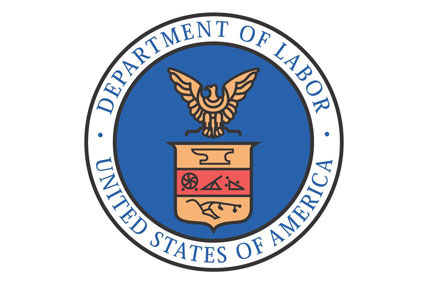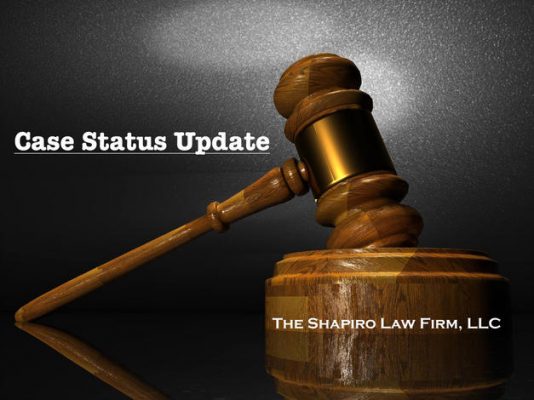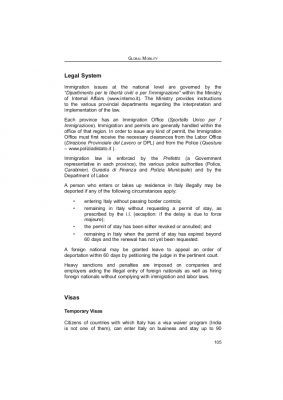In the United States there is a growing number of single parent families or where both work spouses. In recognition of the changes of the model of the “traditional” american family, the Congress enacted the Law of Family and Medical leave (Family and Medical Leave Act, FMLA) of 1993. Although state laws can provide greater coverage than the FMLA, the act establishes federal standards and minimum rights with respect to periods of absence are not paid to employees with health problems, sick family members, employees-pregnant or adopt children.
Coverage and Application of the Family Law and Medical leave
Under the FMLA, employees are entitled to a period of absence of up to 12 weeks for each period of 12 months, so that they can take care of important matters like medical problems, personal or family, pregnancy, or adoption. The period of absence to which you are entitled to the employee under the FMLA is a period of unpaid, but the employee continues to receive health care benefits as if you were actively working. When the period of absence ends, the employer must reinstate the employee in the same job or in a position “equivalent”. An equivalent position is a job whose pay, hours, work performed, working conditions, responsibilities, job security, etc, are similar or comparable. The FMLA also provides that employees who take a period of absence may not be discriminated against or fired for doing so, and it allows employees who have been discriminated against to file charges for wages forgone and other damages.
Limitations of Coverage of the FMLA
The FMLA applies to all employers or all employees. The FMLA covers only employers with 50 workers or more, or who have had 50 or more workers during at least the last 20 weeks. It also applies to public agencies, regardless of employees, and primary and secondary schools, whether private or public. The FMLA applies only to employees who have worked for a covered employer for a minimum of 12 months, although it is not necessary that have been 12 consecutive months. In addition, the employee must have worked at least 1,250 hours for the employer during the previous 12 months, in a site in which the employer manage 50 or more employees in a 75-mile radius.
Valid reasons for a Period of Absence Under the FMLA
If the employer and the employee are both covered, the FMLA recognizes several valid reasons for which an employee has a right to a period of absence, unpaid, among them:
- a serious health condition that does not allow the employee to perform his work;
- the need to provide care to a member of the immediate family of the employee who suffers a serious health condition;
- the birth of a child;
- the adoption of a child;
- the care of a newborn child or a child recently adopted.
Notice requirements under the FMLA
Generally, the FMLA requires that the employee report to the employer with 30 days advance notice that it plans to take a period of absence under the FMLA and the reason for the absence period. There is not a “special language” that the employee must use to notify the employer, and neither is it necessary for the employee to mention the FMLA. In contrast, the notice must provide sufficient information to the employer so that it knows that the employee is requesting a period of absence and the reasons. This allows the employer to determine if this request qualifies under the FMLA, and gives you time to find a replacement for the employee. When an employee has need of a period of absence is sudden, as in the case of a medical emergency, unexpected, it can be taken the period of leave of absence without the notice required by the FMLA, but must inform the employer as soon as possible.
A “Serious Health Condition” Under the FMLA
The FMLA defines a “serious health condition” as an illness or injury that requires the care of a patient admitted in a hospital (or similar) or continuing treatment by a health care provider. In the case of the employee, a serious health condition is one that does not permit the employee to perform their work, whether for the same illness or the need for diagnosis or treatment. For an illness to be considered a serious condition, should be expected to last more than a few days, and should require treatment by a health care provider. Examples of serious health conditions include heart attacks, strokes, and spinal injuries. Depending on the circumstances, even sickness more common, like morning sickness, can be considered the condition serious health in the framework of the FMLA.
Although the FMLA does not require that the employee take a period of absence for medical reasons obtain a medical certificate that describes the problem, some states yes they require. In case of doubt with regard to the seriousness of a condition, the FMLA allows the employer to require the employee to obtain a medical certificate, provided that it is notified of this before. If the employer disagrees with the determination of the doctor, you can ask the employee a second and third opinion. The employer will be responsible for the costs and should be consulted to a doctor who has not been previously associated with the employer. The doctor must determine if the employee is unable to perform its work or if the period of absence requested is necessary to the medical level.
Birth or Adoption of a Child
Another common reason why an employee can take a period of absence under the FMLA is the birth or adoption of a child, and the need to care for the child. If an employee takes a period of leave of absence under the FMLA for this reason, generally has the right to take the period of the absence when the child is born or is adopted. However, the period of leave may start earlier if there is a legitimate medical reason related to the birth, or if it requires the employee’s presence to complete the period of adoption.
Coordination of the Period of Absence under the FMLA with a Period of Absence Paid
Even though the period of absence established by the FMLA is unpaid, the employer and the employee can co-ordinate this period of FMLA leave with a period of absence is paid, such as vacation days or sick days. An employee may voluntarily choose to take the period of absence paid vacation, personal matters or family, or sick days, instead of days of the period of absence is not paid, as stipulated by the FMLA, if the reason for taking a period of absence under the FMLA allows you to take those days unpaid. An employer also may determine that part of the period of absence paid by the employee is taken as a period of absence under the FMLA.
Back to Work
Upon her return, the employee must be assigned to the same job or one equivalent. If the employee is not eligible for such a position because you need to renew a license, pass a continuing education course, or similar, the employer must give the employee a reasonable opportunity to comply with such a requirement. The FMLA exempts the requirement of reinstatement to certain employees with “high salary” in cases in which reinstatement would cause serious economic hardship to the employer, provided the employer informs the employee that he will not be reinstated after the period of absence and the employee does not return to work. Another exception applies to the requirement of reinstatement if the employer proves that the employee would have been fired even if he had not taken a period of absence under the FMLA. This is called “affirmative defense of removal”. For example, if an employer closes a plant because it is not cost-effective, the employer should not reinstate an employee returning from a period of absence, endorsed by the FMLA.
Legal help with a Problem of the FMLA
The enactment of the FMLA by Congress in 1993 recognized that changing conditions demanded a new way of finding a balance between work and family. Through FMLA, Congress established a national standard of 12 weeks per year of period of absence is not paid to the employees with important family issues. The purpose of the FMLA is to allow an employee to handle your problems without generate costs to the employer and without it being detrimental to his position. If you have questions about your rights under the FMLA, or if you believe that your rights have been violated, contact a lawyer specializing in labour law for more information about your options.










